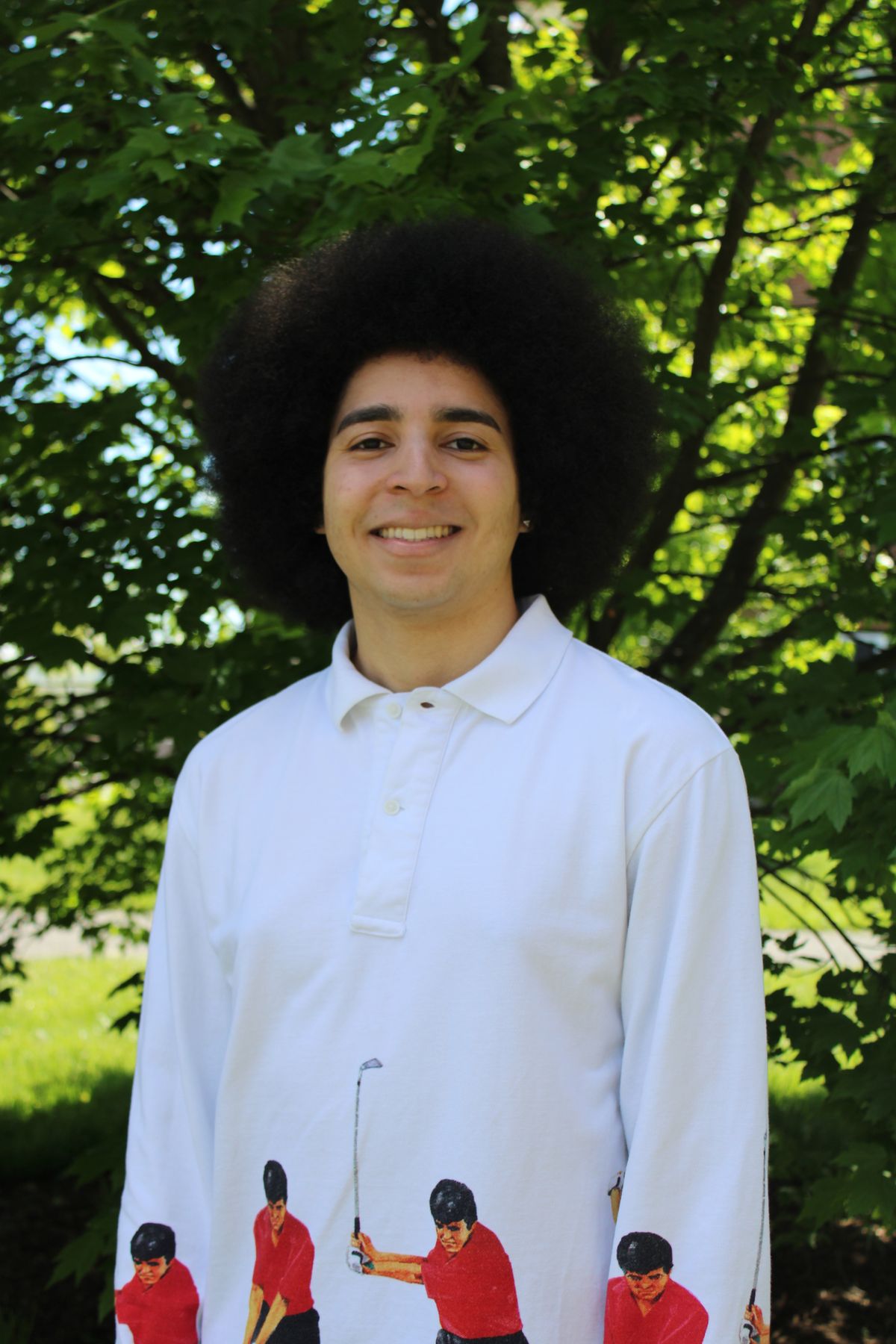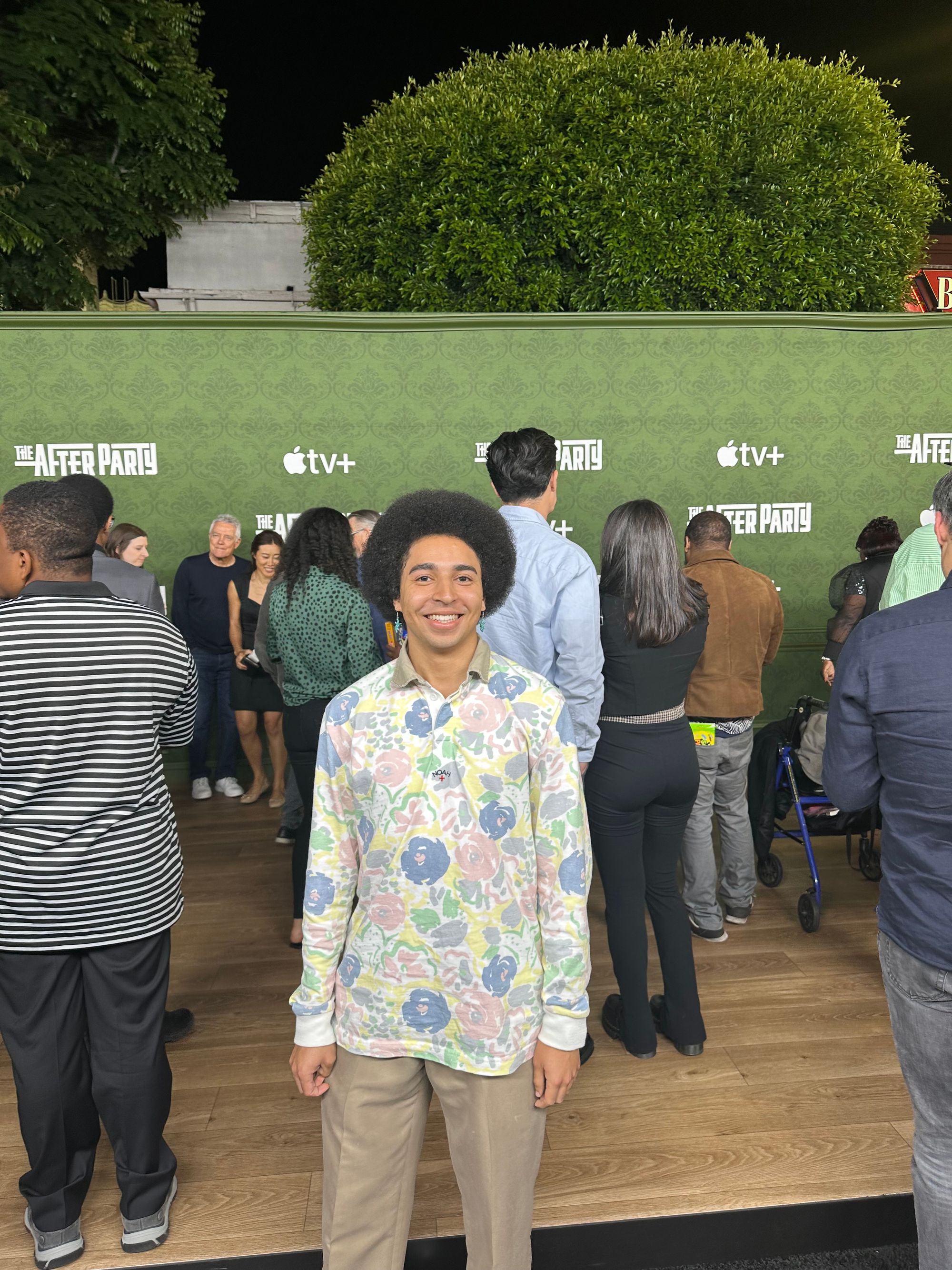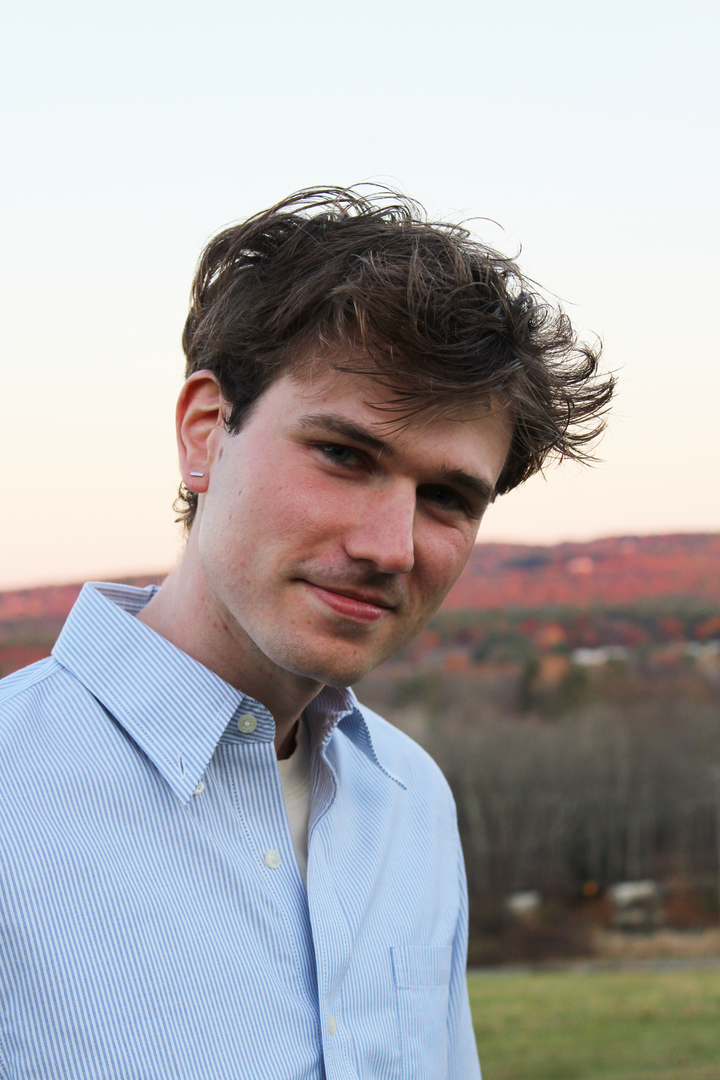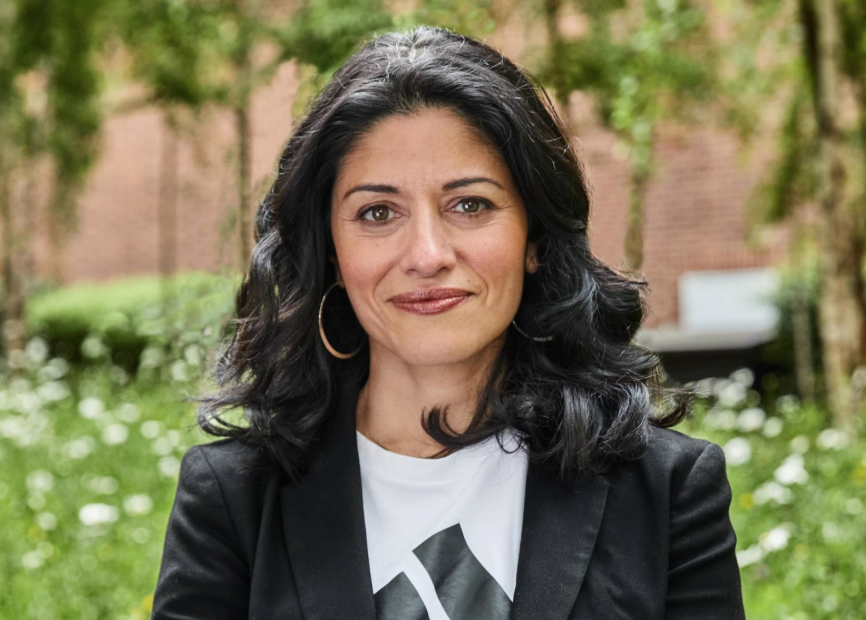Diego Duckenfield Lopez: Interdisciplinary Approaches to Identity and Academics
Film and media studies and Black studies major Diego Duckenfield-López ’24 used an interdisciplinary approach to shape how they think about their identity and develop their thesis.

Diego Duckenfield-López ’24 is nervous to give you a film recommendation.
“I don’t know necessarily what to watch,” they said.
They are being way too humble, which is a characteristic that everyone I spoke to — their friends and professors alike — highlighted about them.
In reality, Duckenfield-López does know what to watch. A film and media studies and Black studies double major, they worked at an art house cinema for over two years and have already watched 76 movies this year.
More than that, the way Duckenfield-López thinks about film is unlike anyone else I’ve encountered. Every sentence they say is loaded with film theory and history, but they never come off as pretentious or academic; they just are incredibly knowledgeable and passionate. When they talk, you are utterly transfixed (which may be why I wanted to profile them again after having already interviewed them for a different article). So if you do get a film recommendation from them, consider yourself lucky — they know their stuff.
Multicultural Miami
Duckenfield-López grew up in Miami, Florida.
“[It’s] a city that is a lot of immigrants, and mostly immigrants from Latin America, including my own mom. So just growing up in a place where half the people speak Spanish is like really interesting and unique,” they said. “Miami’s very, very new [compared to other American cities] and I think its identity is shifting a lot [in part because] the influence of the immigrants [creates] a lot of different Miamis.”
Born to a Black father and a Columbian mother, Duckenfield-López was able to visit Spanish-speaking, immigrant communities frequently. At the same time, they grew up in a very privileged, predominantly-white area.
“My parents thought it was important that I have a good education,” they explained. “So I went to [predominantly white institutions] my whole life. So as a result, I think my experience of Miami is a bubble.”
There were very few Black teachers at Duckenfield-López’s high school. So when a new Black teacher joined during their senior year, he and Duckenfield-López became close — even though they were never taught by him. That teacher happened to be an Amherst alum who was a Black studies major.
While they were already considering Amherst as a potential college for many reasons — close student-professor relationships, open curriculum, small class sizes — sharing a bond with that teacher and talking to him about Amherst helped seal the deal.
“Part of the reason I decided to [come to Amherst] and become a Black studies major was him talking about it,” Duckenfield-López said. “I was lucky enough to go to a high school that really did value relationships between teachers and students. And I had a lot of really good relationships with my teachers. And I didn’t really want to give that up when I went to college.”
Finding Community at College
Duckenfield-López’s upbringing in a privileged area attending predominantly white schools prepared them for many of the culture shocks that students of color often face when they arrive at Amherst. What they were not prepared for was Covid.
Classes were online. Student groups could not meet in-person. Students had to eat outside, and if the weather was bad, they ate alone in their dorm rooms. Starting off their first year in this environment was tough.
“There [was] no one who could tell us how to go about this,” they said. “So we were fully just plunged into this.”
But Duckenfield-López said that as difficult as this period was, they are happy they decided to start college that semester.
“I did meet some good friends in that period, so I don’t really regret it at all,” they said.
Once pandemic restrictions were lifted, Duckenfield-López found even more community through student groups that allowed them to explore their racial identity and their academic interests.
They joined affinity groups like the Black Students Union and the Multicultural Student Union, for the first time exploring their biracial identity and bonding with others over shared backgrounds, an opportunity they never had back home.
“In high school the only person I knew that [had multiple racial identities] was my own brother. So it was really interesting coming here, and hearing people from different places,” they said. “I feel like I did connect with a lot of people in that club through that experience.”
They also joined the new Film Society, which had just been revived after decades of inactivity. Appreciating film was a solo activity for Duckenfield-López back at home because they could not find a lot of people who were as passionate about art as they were.
“A lot of people were very focused on just doing well in school,” they explained. “And unfortunately, doing well in school a lot of times does not involve caring about art.”
Before Amherst, Duckenfield-López spent a lot of time watching YouTube movie commentaries and going to see indie movies by themselves (for free at the art house cinema where he worked). But now, through Film Society, they got to explore the social element of watching movies.
“It has changed my relationship to films … I think it’s something that I can share more, and I have more people I can talk to about it,” Duckenfield-López said.
Reflecting back on their years at Amherst, Duckenfield-López felt that the community they found here was also extremely important for helping them embrace their queer identity. Their high school “was very homophobic,” and though they started to find other queer people in their senior year, Duckenfield-López never felt fully comfortable exploring this aspect of themselves. This, thankfully, has since changed.
“I was able to come here [and] become friends with people who I feel like I could fully trust,” they said. “Being around people who have very fluid understandings of identity … has been huge … A lot of [these things] I have been able to talk with my parents [about] and that is definitely a result of being here and becoming more comfortable with who I am.”
Film through an Academic Lens
Duckenfield-López knew they wanted to be a film and media studies and Black studies major before they even got to Amherst, so they started getting involved in the departments early on. By their first college summer, they were a Schupf Fellow working with English and film and media studies professor Amelie Hastie. Through that experience, Duckenfield-López began to learn how they have to approach academic research.
“For me, [I love] constantly making new connections, and I have to stop myself,” they said. “Instead of trying to find out as much as possible, [sometimes I need to do] a deep dive into one thing and let myself reveal something. Because I think I get very excited about coming across the [new information].”

Their predilection for connection-making has carried through to their work on their thesis, which explores how pop culture from the seventies, such as Blaxploitation films, influenced later constructions of Black identity. For example, their third chapter explored Spike Lee’s movie “Do the Right Thing” and the commercials he made for Jordans.
“Why is there this scene [in “Do the Right Thing”] where Jordans are prominent, [and] someone’s Jordans get scuffed, and it becomes part of a huge argument?” Duckenfield-López explained. “If I was just looking at the film itself, I wouldn’t … have thought to talk about Jordans and the phenomenon of Jordans, but [I tend] to branch out a lot.”
Hastie has known Duckenfield-López since they were a first-year and she advised them for their Schupf Fellows program and thesis. She said this ability to make connections goes beyond research — they do it even with their majors.
“I’ve seen Diego become a … fully realized intellectual who … is able to bring a number of fields of knowledge together,” Hastie said. “Their work between film and media studies and Black studies really served one another in a way that I don’t always see amongst double majors. And I think that has a lot to do with how they think and are able to constantly forge connections between ideas and to develop ideas through multiple points of view.”
Working on their thesis has made Duckenfield-López view films differently.
“I … develop[ed] a way about thinking of film [where it is] a social phenomenon,” they said. “I feel like that’s something that didn’t become clear to me until towards the end of the thesis and having conversations with my thesis advisor: my interest is really [looking at] films as cultural objects.”
Looking Ahead
This summer, Duckenfield-López will be working as an archives intern. They suspect they will want to go to graduate school sometime soon, but they are taking the time to think about what they want in a future career and field.
“It’s the first time in our life where the next step in our life isn’t predetermined to some extent … I’m trying to give myself time to sort of think like, ‘Okay, what do I actually want in the near future?’” Duckenfield-López said. “It’s the first time I’m making a big life decision completely for myself … it’s almost completely up to me [and] that is very freeing.”
They urged Amherst students to take this opportunity and choose careers that are not typical Amherst-pipeline fields, like consulting and finance.
“There’s a lot of people who feel like they have to do these things because that is [how] success is … presented to them … I just would like people to be more creative … I would like to see the world change,” they said. “You are in a place like this [where] you have a lot of privilege, you have a lot of access to resources, so I think I would like people to be more creative about how they use those resources.”
The thing Duckenfield-López is thinking the most about while thinking about their future career path is finding ways to continue having strong communities like the one they found at Amherst.
“I don’t know what that will look like,” they said. “But … I’m prioritizing [community] just as much as I am [prioritizing] success in the more traditional sense of career.”





Comments ()